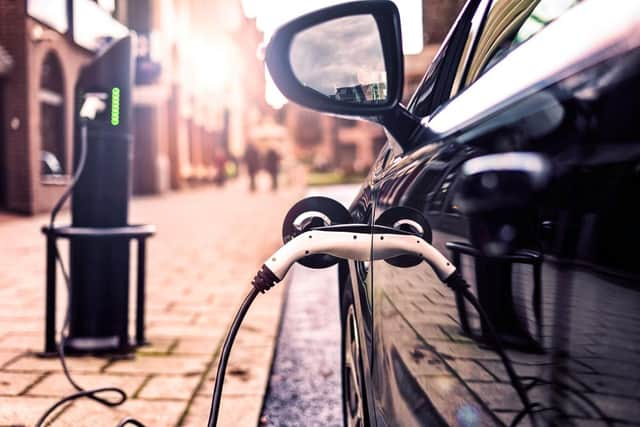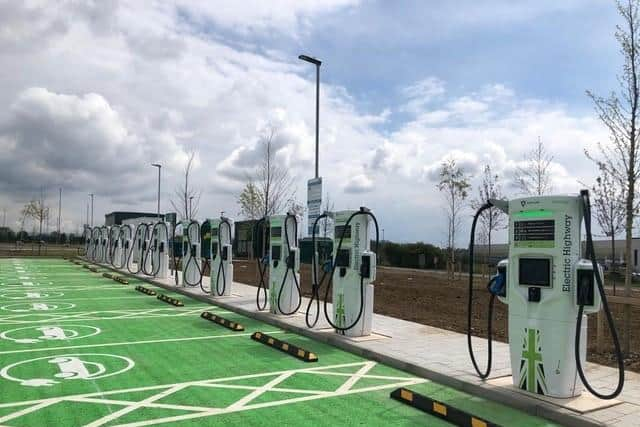Ofgem announces £300m funding to boost EV charger network
and live on Freeview channel 276
A £300 million investment in Britain’s energy network is to help support the installation of 1,800 new ultra-rapid electric car chargers along the country’s motorway network.
Energy regulator Ofgem has announced it will invest the money over the next two years to improve cabling to service stations on motorways and key trunk roads as part of a programme of clean energy projects.
Advertisement
Hide AdAdvertisement
Hide AdThe new infrastructure will allow operators to triple the number of ultra-rapid (100kW+) chargers along main routes. Cabling improvements will also create capacity for a further 1,750 charging points in towns and cities around the country.


With the planned ban on new petrol and diesel cars due in less than nine years and sales of EVs and plug-in hybrids growing rapidly, Ofgem said: “Britain’s cables, substations and other infrastructure need a massive upgrade to support this new demand for electricity.”
The announcement comes less than a week after the Common Public Accounts Committee said the UK had a “mountain to climb” if it was to achieve the proposed ban on new petrol and diesel vehicles by 2030.
Jonathan Brearley, chief executive of Ofgem said: “This £300 million down payment will support the rapid take up of electric vehicles which will be vital if Britain is to hit its climate change targets. Drivers need to be confident that they can charge their car quickly when they need to. We’re paving the way for the installation of 1,800 ultra-rapid charge points, tripling the number of these public charge points. Drivers will have more charging options for longer journeys.
Advertisement
Hide AdAdvertisement
Hide Ad“In the year that Glasgow hosts the COP26 climate summit, the energy networks are rising to the challenge and working with us and partners to accelerate projects that can start now, benefiting consumers, boosting the economy and creating jobs.”


Transport Minister Rachel Maclean said: “With more than 500,000 electric cars now on UK roads, this will help to increase this number even further as drivers continue to make the switch to cleaner, greener vehicles.”
RAC EV spokesman Simon Williams said the funding was “excellent news” and would allow for a masive boost in chargers: “Widespread availability of faster charging facilities will help to give more drivers the confidence to go electric and will be vitally needed as more people opt for EVs,” he said.
“It will also mean EV drivers travelling long distances will be able get to their destinations more quickly and with far less stress. We believe the closer the experience of public recharging becomes to the short time spent refilling at petrol stations, the better.”
Advertisement
Hide AdAdvertisement
Hide AdLisa Barber, home products and services editor at Which?, said: “Millions of people in the UK are expected to switch to electric cars over the next decade. However, the UK’s public charging infrastructure is fragmented, difficult to access and can be a major barrier to ownership for those who don’t have a private charger.
“Ofgem’s investment to expand the UK’s public charging network is a positive step towards removing one of the biggest hurdles to electric vehicle ownership.
“To ensure electric vehicles are an option for all consumers, the public charging infrastructure must be overhauled to offer universal access to all networks, making it much simpler and easier to use than it is today.”